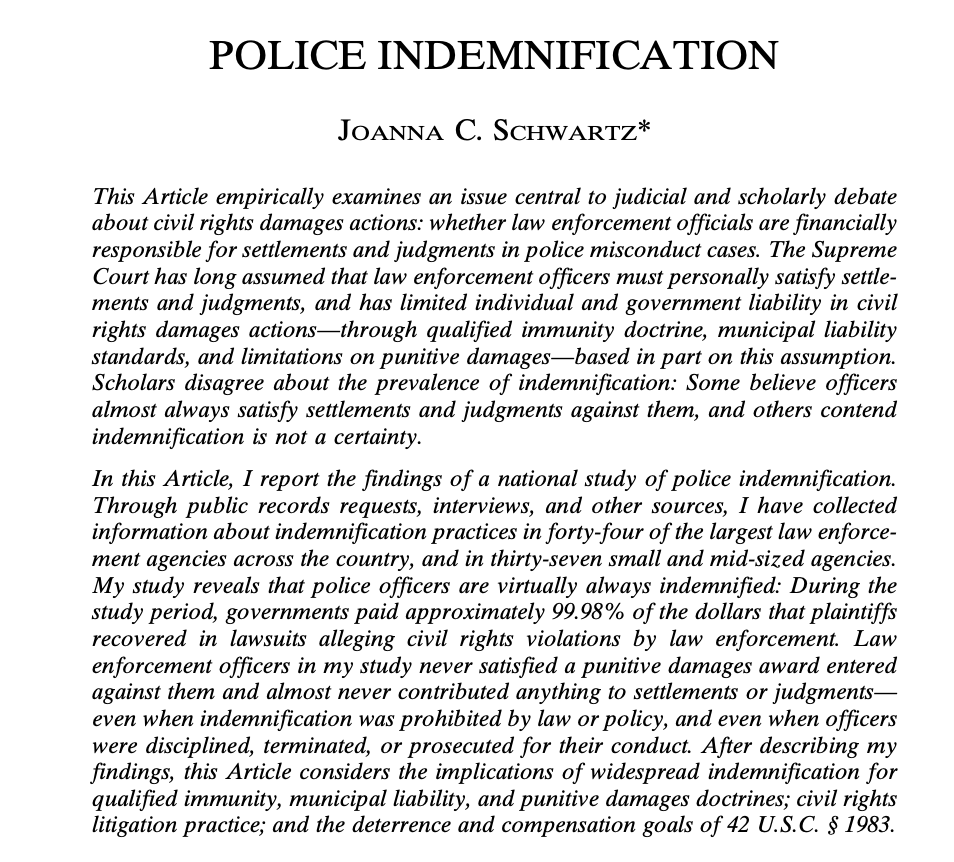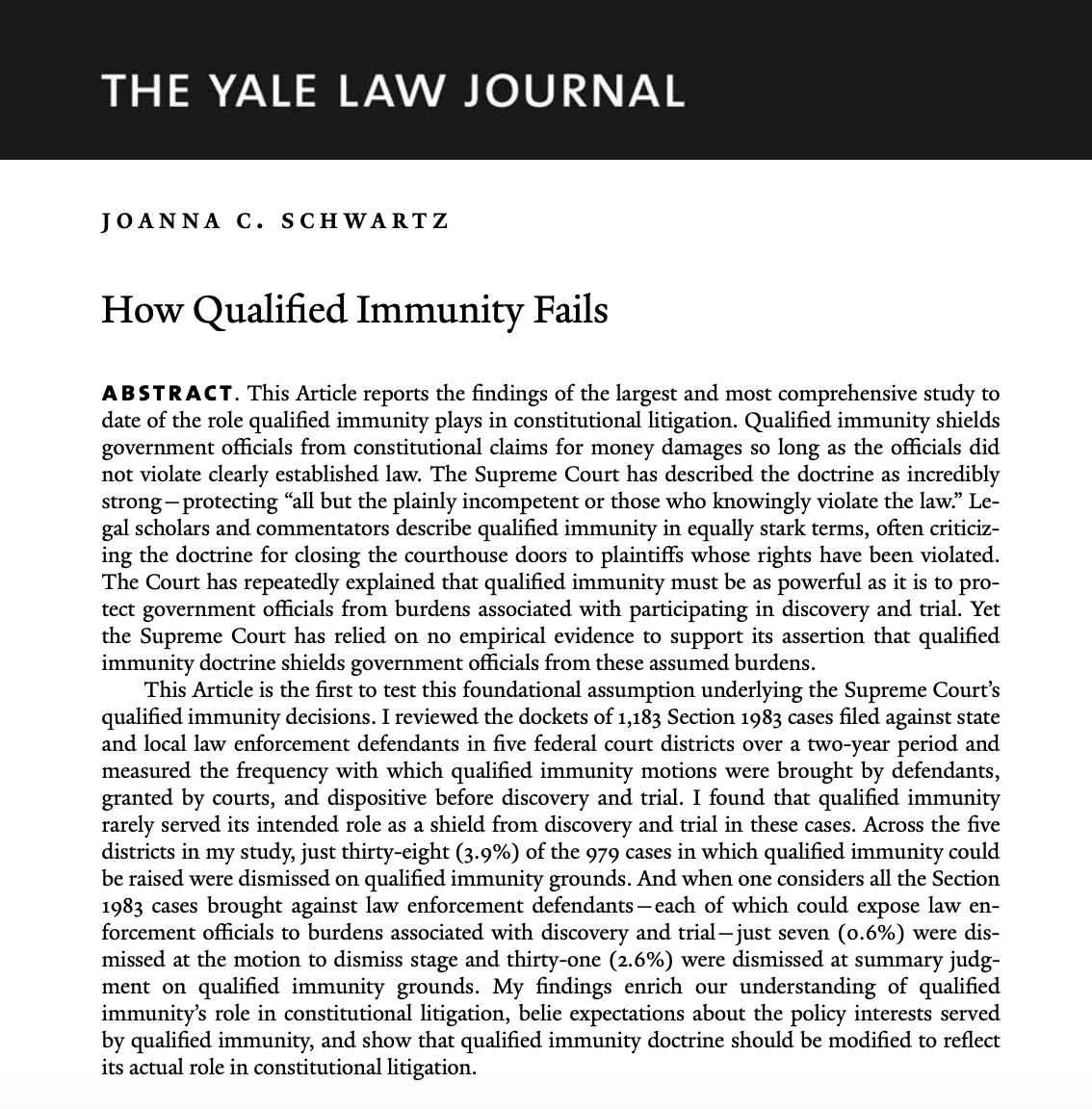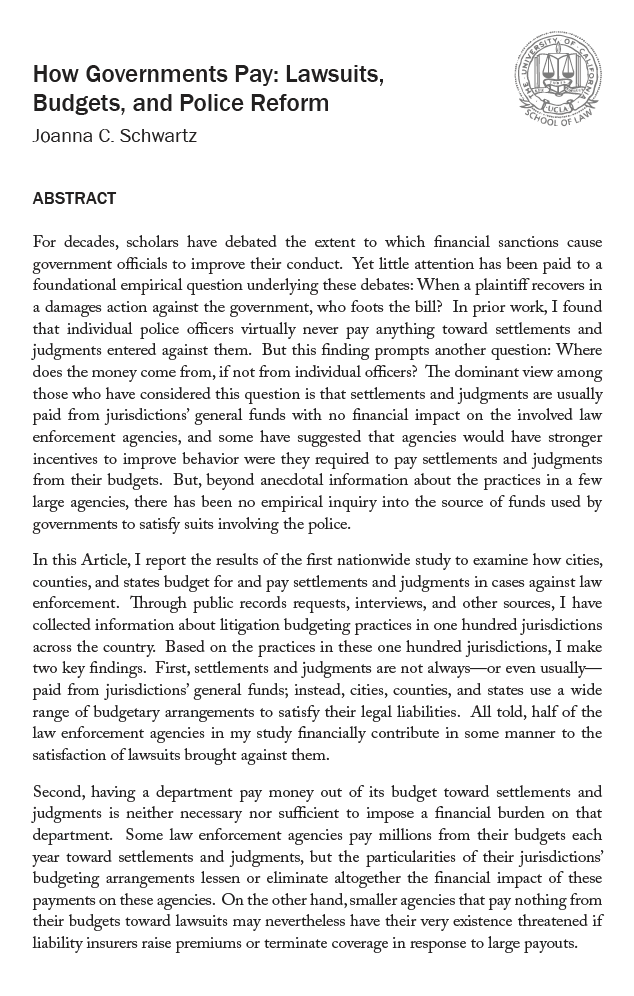
UCLA Law Prof. Civil procedure/civil rights litigation/police accountability. Author of Shielded: How the Police Became Untouchable (@VikingBooks 2023)
How to get URL link on X (Twitter) App

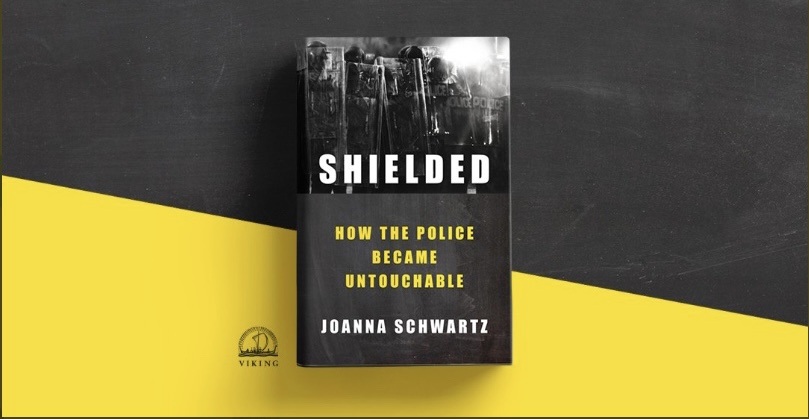
https://twitter.com/ABANews/status/1793312603671810497
 ...and that is just what I aimed to do with Shielded - explain the many legal & bureaucratic barriers that make it so difficult for people wronged by police to get justice in the courts. 2/5
...and that is just what I aimed to do with Shielded - explain the many legal & bureaucratic barriers that make it so difficult for people wronged by police to get justice in the courts. 2/5
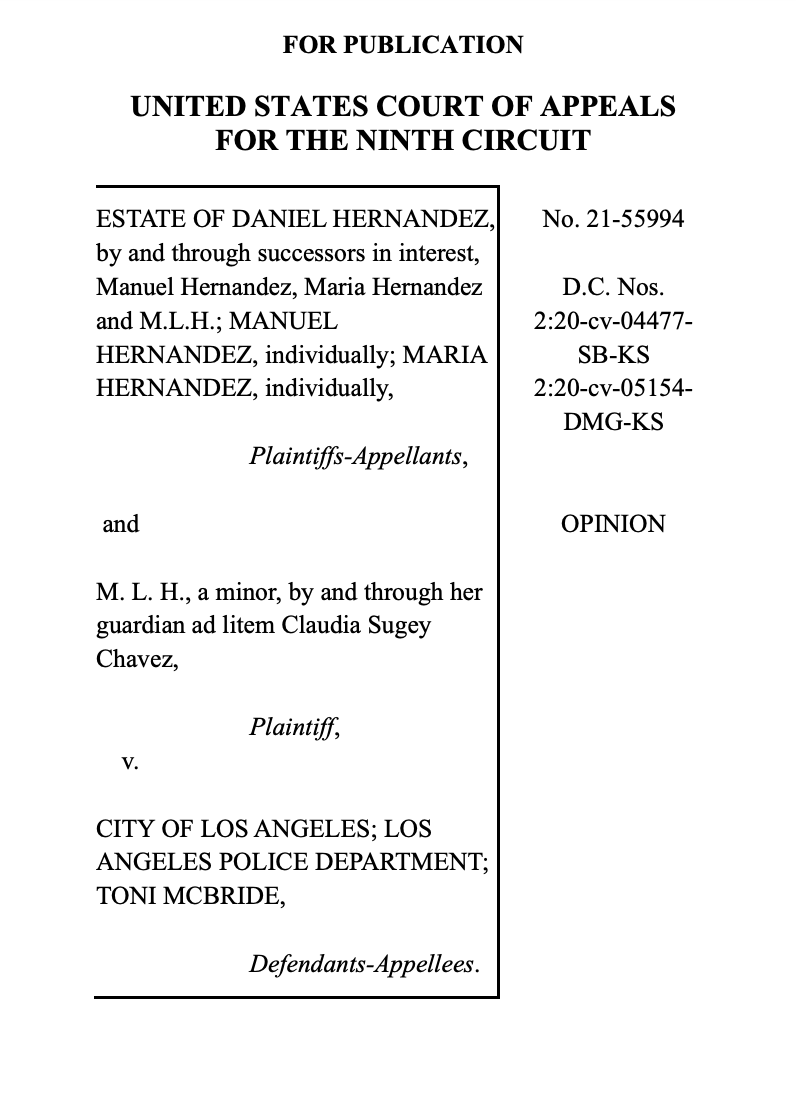
 According to the decision, Daniel Hernandez caused a multi-car crash. When police approached his car, he exited with what officers thought was a knife (but was a boxcutter). He was holding the boxcutter up toward an officer-but was 40-45 feet away-when she fired twice. 2/10
According to the decision, Daniel Hernandez caused a multi-car crash. When police approached his car, he exited with what officers thought was a knife (but was a boxcutter). He was holding the boxcutter up toward an officer-but was 40-45 feet away-when she fired twice. 2/10
https://twitter.com/BernardKerik/status/1733915680016109846A bit of table setting: indemnification means (as a matter of law/policy) that when an officer is sued, $ paid comes from the city/county. Qualified immunity, in contrast, is a defense from liability. So, when officers are denied QI, they are still indemnified. 2/x


https://twitter.com/writerbarton/status/1634594287580065792In 2014, E. Cleveland officers assaulted Arnold Black & locked him in a supply closet. He won a $50 million verdict against the city that the court of appeals upheld, finding the dep't "had an unwritten custom & practice of using violence and arrests to intimidate people.” 2/5


https://twitter.com/aaronsibarium/status/1547586884376834049The notion that the Uvalde officers were worried about the threat of being sued when deciding whether to confront the shooter has no basis in reality. Studies have repeatedly found that the threat of suit is not on most officers’ minds when doing their jobs…


https://twitter.com/radleybalko/status/1402625556387188741For those not in the weeds with this stuff, when courts issue a decision they can indicate whether it is “for publication.” If so, it’s included in actual books of cases-where, long ago, people went to read about them. But now, decisions-including “unpublished ones”-are online.

 To defeat QI, plaintiffs have to find prior cases with virtually identical facts. The SCT says these factually analogous cases are necessary to notify officers about the illegality of their conduct. But officers aren't actually educated about the facts and holdings of most cases.
To defeat QI, plaintiffs have to find prior cases with virtually identical facts. The SCT says these factually analogous cases are necessary to notify officers about the illegality of their conduct. But officers aren't actually educated about the facts and holdings of most cases.
https://twitter.com/NPAP_NLG/status/1360027348175831050Here's a little history. Qualified immunity was created by the Supreme Court in 1967, to shield police and other government officers from damages liability when they acted in "good faith." But in 1982, the Court said it should protect officers unless...
